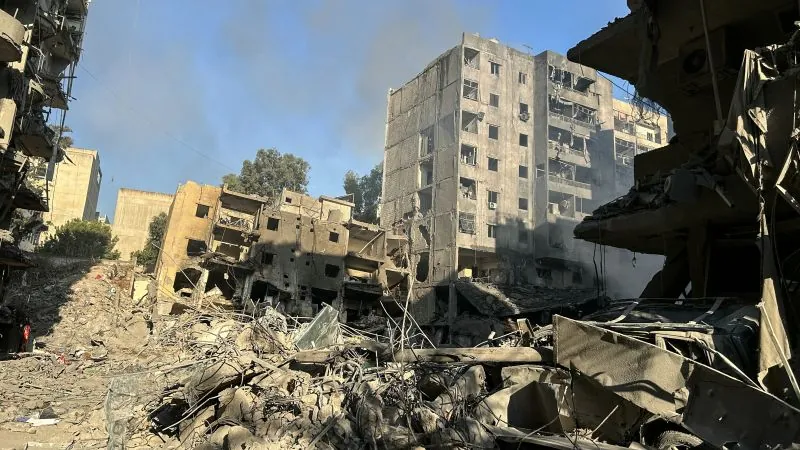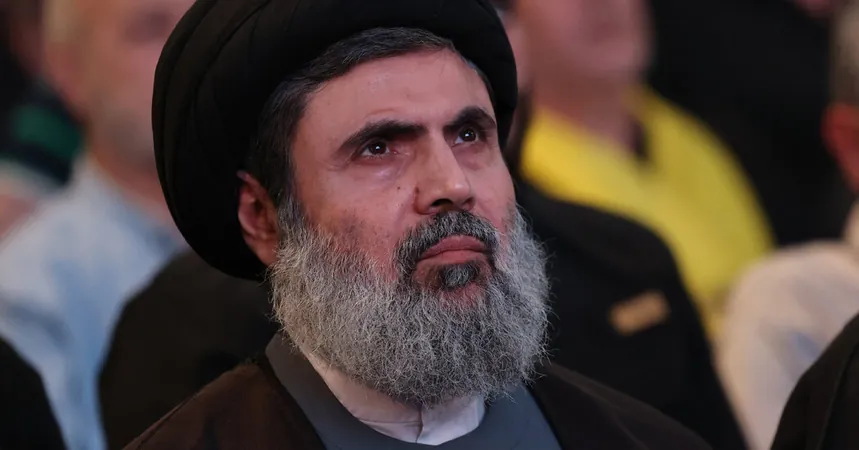
Escalating Tensions in Middle East as Hezbollah's Leader is Killed
2024-09-29
Breaking News: Escalating Tensions in Middle East as Hezbollah's Leader is Killed!
The conflict between Israel and Hezbollah has reached a critical juncture, following the assassination of Hezbollah leader Hassan Nasrallah in a dramatic air raid on Beirut, Lebanon. Since the start of intensified military actions, Israel has been relentlessly targeting what it terms 'terrorist infrastructure' belonging to Hezbollah, which is backed by Iran. The Israel Defense Forces (IDF) have confirmed that they are continuing their operations, with the possibility of ground incursions—a move that, if executed, would mark Israel's fourth invasion of Lebanon in the last half-century.
In the wake of this violent escalation, the humanitarian crisis is alarming. Reports indicate that over 1,000 individuals have lost their lives, while hundreds of thousands have been displaced within Lebanon due to ongoing airstrikes, according to officials. Many families are now seeking refuge in makeshift shelters, with some opting to sleep on beaches and in public squares across Beirut.
What's Happening on the Ground?
On Sunday morning, fresh reports indicated that Israeli airstrikes reached southern Lebanon, particularly targeting areas like Tayr Debba, where casualties were reported. The state-run National News Agency of Lebanon confirmed four deaths from that airstrike and reported that search and rescue operations continue amidst the rubble in the Bekaa region.
Many residents of Beirut found themselves trapped, as evacuation warnings were issued just moments before airstrikes commenced. Civilians are facing impossible choices, with some fleeing to the relative safety of crowded areas, fearing the attacks will follow them.
Israel's Strategic Moves: Potential Ground Invasion?
Israeli military officials have hinted at the possibility of a ground invasion, but an official decision has not yet been communicated. The U.S. has been closely monitoring the situation, expressing concern over further escalation into a full-scale conflict. Analysts believe this situation could spiral out of control, particularly if Hezbollah retaliates strongly in the coming days.
Hezbollah's response, while not yet articulated, is widely anticipated. The group may still have the capability to launch counterattacks, impacting both military and civilian infrastructure in Israel. The implications of losing their leader, however, could force them to shift tactics significantly.
The International Community Responds: Iran's Position
Iran, a key ally of Hezbollah, swiftly condemned Israel's actions following Nasrallah's death. The Iranian envoy to the United Nations called for an emergency Security Council meeting to address Israel’s aggressive military strategy. Analysts are closely watching both the Iranian response and its potential impact on the regional power dynamics.
Decapitation Strikes: Do They Actually Work?
Historically, targeting terrorist leaders has not always thwarted their organizations. The assassinations of figures such as Imad Mughniyeh of Hezbollah in 2008 and Sheikh Ahmed Yassin of Hamas in 2004 yielded temporary successes but ultimately did not cease the groups' resilience or operations. Current U.S. military assessments echo this sentiment, recalling the case of Abu Musab al-Zarqawi, whose removal did not deter Islamic State’s emergence years later.
The aftermath of Nasrallah's killing raises pivotal questions about the future of Hezbollah and what comes next for a group that has demonstrated remarkable resilience during past conflicts. Despite the immediate chaos, historical patterns suggest that Hezbollah might regroup and appoint new leadership to carry forward their combat against Israel.
What Does the Future Hold?
With tensions at an all-time high, many are left wondering about the potential for a wider regional conflict. President Biden’s administration is reportedly alarmed and actively seeking mechanisms to prevent a full-blown war, fearing it could engulf other regional powers.
Former officials warn that a strong response from Hezbollah is not just probable but essential for maintaining credibility with its fighters and supporters. As violence escalates further, the question looms: Can this conflict be contained, or are we on the precipice of a more extensive war that could alter the Middle East's geopolitical landscape forever?
Stay tuned as we continue to provide live updates on this developing story.




 Brasil (PT)
Brasil (PT)
 Canada (EN)
Canada (EN)
 Chile (ES)
Chile (ES)
 España (ES)
España (ES)
 France (FR)
France (FR)
 Hong Kong (EN)
Hong Kong (EN)
 Italia (IT)
Italia (IT)
 日本 (JA)
日本 (JA)
 Magyarország (HU)
Magyarország (HU)
 Norge (NO)
Norge (NO)
 Polska (PL)
Polska (PL)
 Schweiz (DE)
Schweiz (DE)
 Singapore (EN)
Singapore (EN)
 Sverige (SV)
Sverige (SV)
 Suomi (FI)
Suomi (FI)
 Türkiye (TR)
Türkiye (TR)